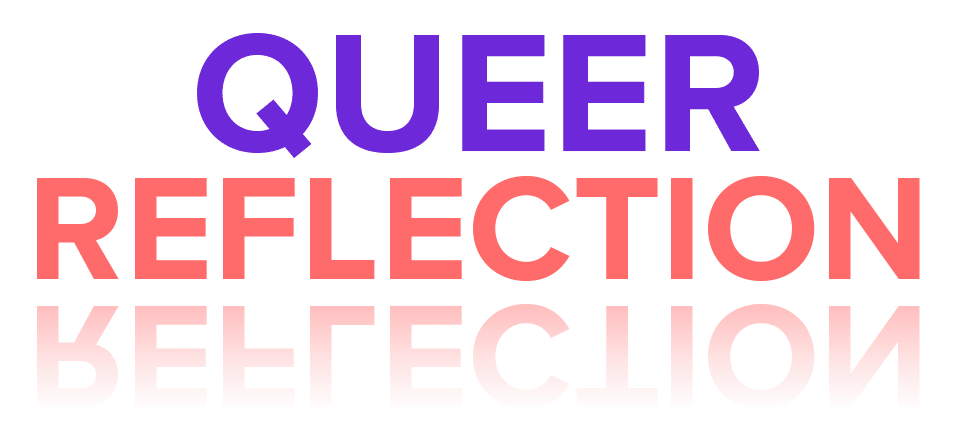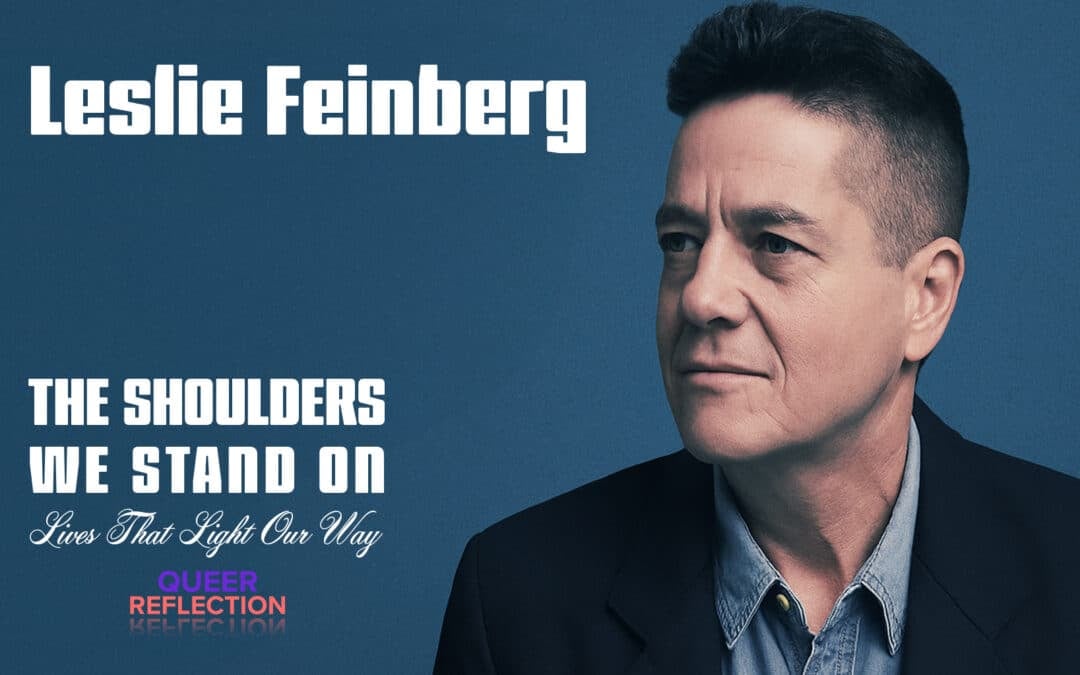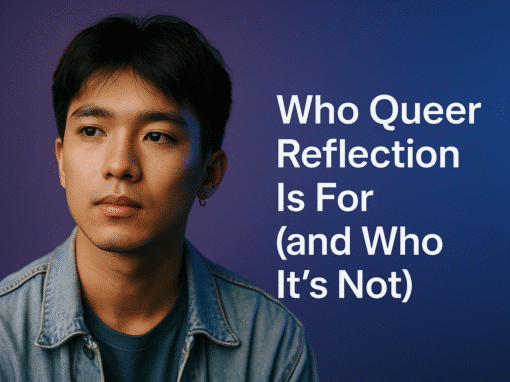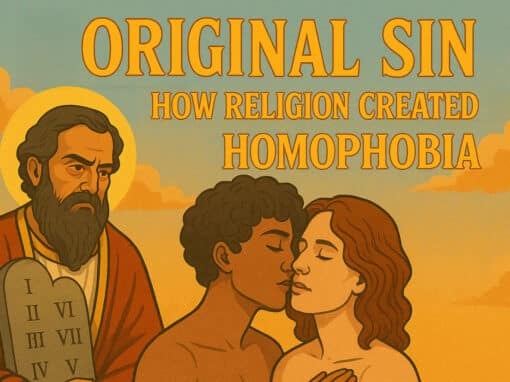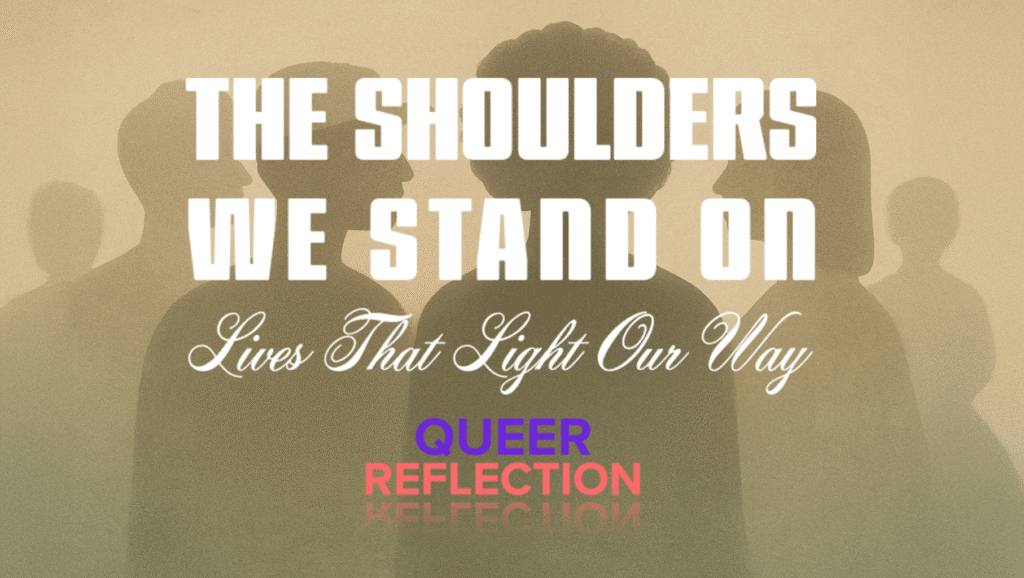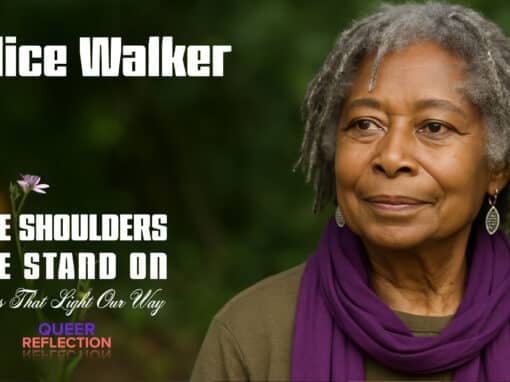“Gender is the poetry each of us makes out of the language we are taught.”
— Leslie Feinberg
For Leslie Feinberg, identity wasn’t something handed down. It was something claimed—fiercely, tenderly, on their own terms.
Author of the groundbreaking novel Stone Butch Blues, Feinberg gave language to lives that had too often been left unnamed. Their activism and writing reshaped not only how we talk about gender, but how we understand freedom itself: the freedom to name yourself.
Feinberg’s work insists that self-definition is a right—not a privilege, not a performance, not a box to check, but a living, breathing act of self-determination.
A Life at the Intersection
Born in 1949 in Buffalo, New York, Leslie Feinberg grew up working-class, Jewish, gender-nonconforming, and deeply politicized by the violence they witnessed against queer people and laborers alike. These early experiences forged a lifelong commitment to both trans rights and workers’ rights—a vision of liberation that refused to separate gender justice from economic justice or racial justice.
Feinberg identified most often as transgender, but also described themselves at different times as butch lesbian, masculine female, and simply “Feinberg.” Their life and work rejected binary thinking, opening up a radical conversation about gender that continues to shape activism today.
“I believe in the right of all people to self-identify and to change their self-identification at will.”
— Leslie Feinberg
Stone Butch Blues: Language for the Silenced
Published in 1993, Stone Butch Blues remains one of the most important queer novels ever written. Through the story of Jess Goldberg, Feinberg gave voice to the trauma, resistance, and survival of butch/femme communities and gender-nonconforming people in the mid-20th century.
The novel does not make its protagonist heroic through conformity or assimilation. Instead, it honors the complexity of identity forged under threat—the beauty and cost of refusing to disappear.
“To be ourselves causes us to be exiled by many others, and yet to comply with what others want causes us to be exiled from ourselves.”
— Leslie Feinberg
The Right to Name Yourself
At Queer Reflection, we honor Leslie Feinberg for their unflinching clarity: that no one gets to name you but you. That your body, your pronouns, your identity are yours alone to define, refine, and reimagine.
This belief in gender self-determinism is woven into everything we build. Because empathy doesn’t mean guessing someone’s truth—it means making space for them to tell it.
Learn More About Leslie Feinberg:
- Read Stone Butch Blues for Free (Author-Sanctioned PDF)
- Wikipedia: Leslie Feinberg
- “Pronoun Warriors: Remembering Leslie Feinberg” – Advocate
- Interview with Leslie Feinberg – YouTube
Reflection Prompt:
Where in your life are you still waiting for permission to be yourself?
What would it mean to take that power back—to name yourself, fully and without compromise?
